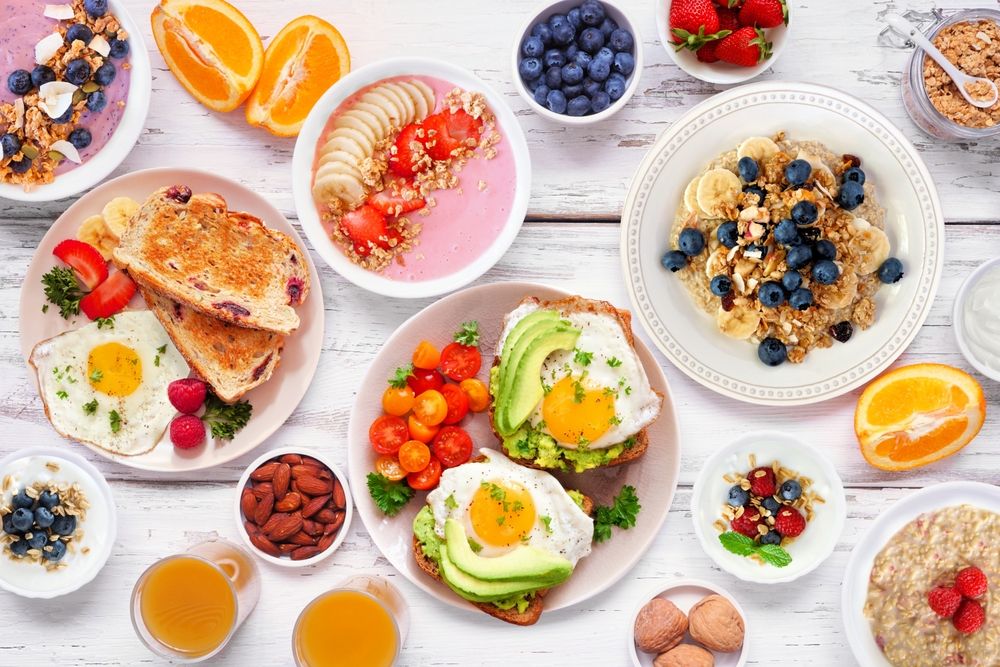
Starting your day with a heart-healthy breakfast lays the foundation for healthier choices throughout the day. A balanced morning meal supplies the energy and essential nutrients your body needs while promoting heart health by supporting cholesterol management, blood pressure control, and maintaining a healthy weight. Whether you enjoy sweet or savory dishes, there are plenty of flavorful and convenient options that align with a heart-friendly diet.
If you’re looking to incorporate more heart-healthy breakfasts, it’s easier than you think! You can enjoy a delicious, nutritious, and quick-to-make meal that supports your heart health without compromising on taste or convenience.
What Makes a Breakfast Heart-Healthy
When crafting a heart-healthy breakfast, consider these important factors:
Total Calories: Maintaining a reasonable calorie intake is key to a heart-healthy eating plan. This often comes down to portion control, so be mindful of serving sizes when building your breakfast plate.
Saturated Fat: Saturated fats can increase LDL ("bad") cholesterol, so it’s best to keep them as low as possible. Aim to limit saturated fat to no more than 10% of your daily calories. Foods like butter, processed breakfast meats, and full-fat cheeses are common sources of saturated fat.
Sodium: The recommended daily limit for sodium is 2,300 milligrams (about 1 teaspoon of salt). Many breakfast staples, such as cheese, bread, and processed meats, can be high in sodium. While you don’t need to eliminate these foods, be mindful of nutrition labels and try to limit multiple high-sodium ingredients in a single meal.
Added Sugar: Unlike the natural sugars found in fruit—which offer heart-healthy benefits—added sugars from sources like granulated sugar, syrup, honey, or agave should be limited to no more than 10% of your daily calories. A little added sugar can go a long way.
Below are 15 heart-healthy breakfast options you can enjoy. Feel free to personalize them by swapping ingredients (like different fruits) or making simple substitutions (such as replacing powdered sugar on French toast with a dollop of Greek yogurt). Explore them all and see which ones become part of your heart-healthy breakfast routine!
Healthy Oatmeal with Peanut Butter and Banana
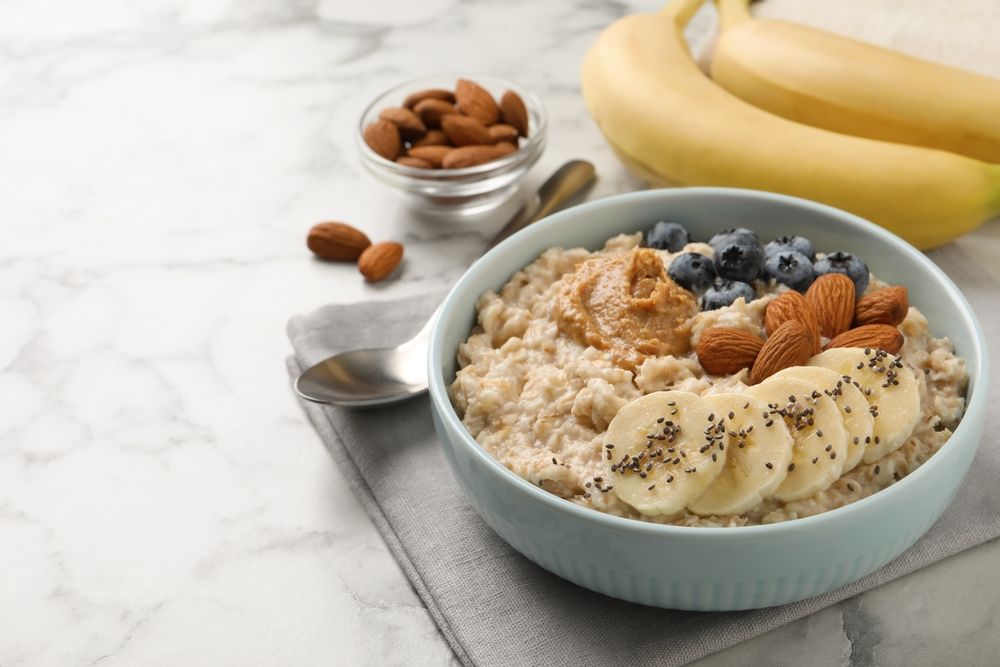
Oats are a great source of soluble fiber, which has been shown to help lower total and LDL cholesterol while also aiding in weight management. Paired with bananas, which are high in potassium and fiber, and peanut butter, which contributes healthy fats, protein, and additional fiber, this combination makes for a well-rounded breakfast that keeps you feeling full and satisfied for longer.
Plant-Based Carrot Cake Smoothie
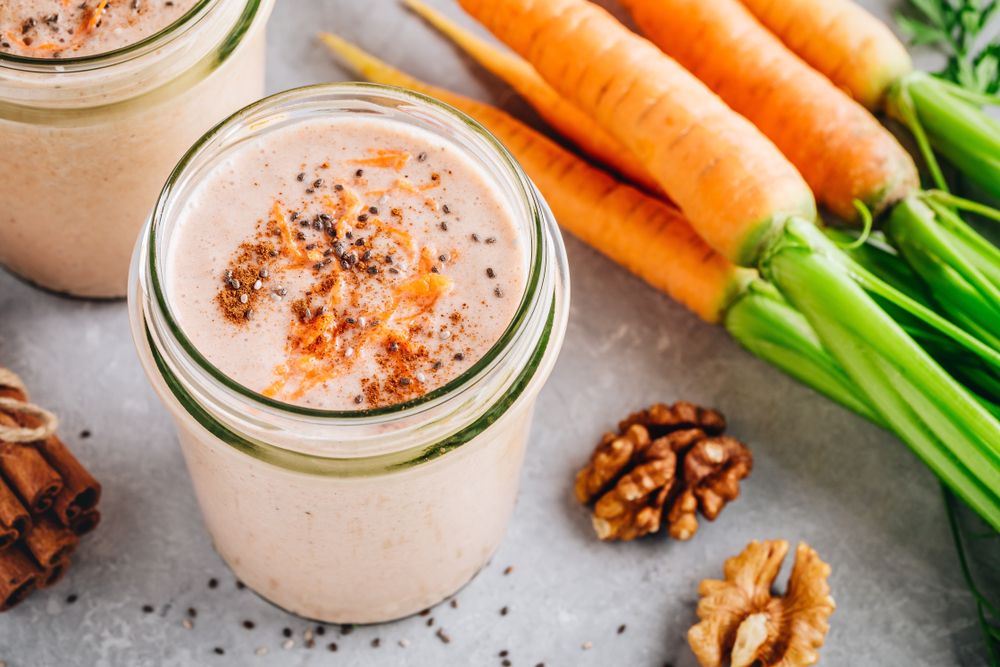
This heart-healthy smoothie packs in carrots, banana, cinnamon, ginger, and nutmeg—but you won't even taste the chickpeas! Chickpeas add plenty of fiber, making this smoothie a nutritious part of any heart-healthy eating plan.
Stuffed French Toast with Strawberries
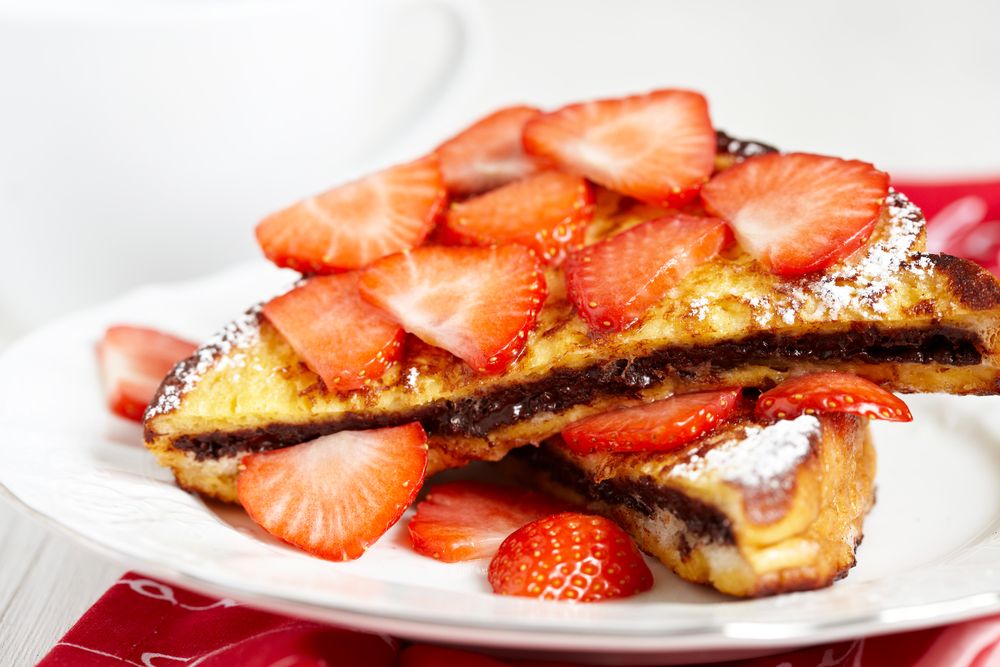
The American Heart Association suggests that adults consume three servings of fat-free or low-fat dairy each day. This recipe features low-fat ricotta and skim milk, paired with strawberries. Research indicates that regularly eating strawberries and blueberries may reduce the risk of heart attack, so don't hesitate to add extra strawberries on top of your French toast for a heart-healthy boost!
Maple-Cashew-Apple Toast
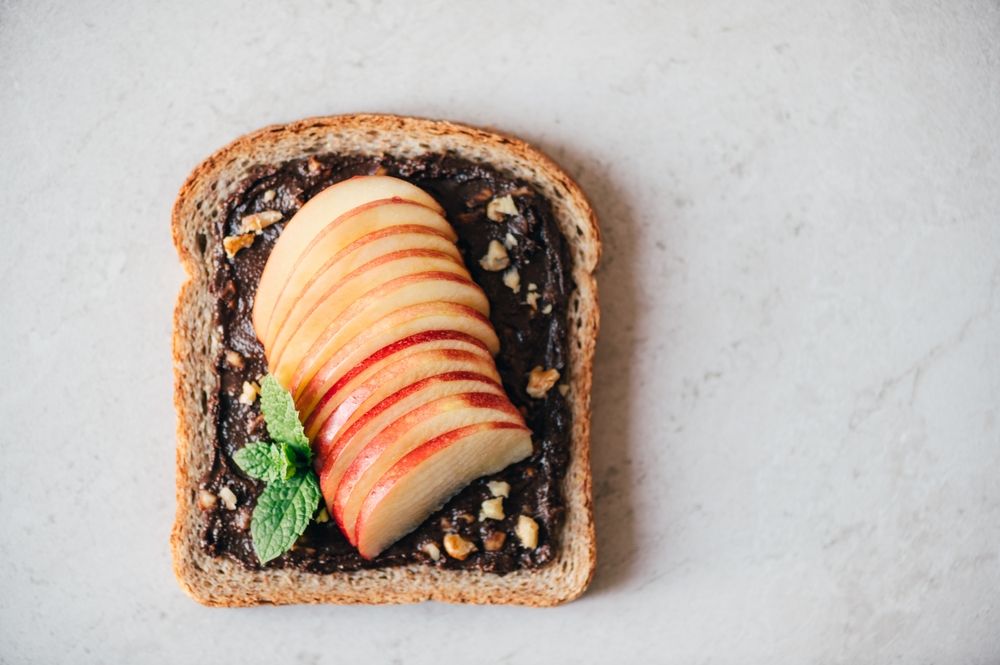
This simple, 5-ingredient toast offers a quick and nutritious breakfast, covering three food groups: protein, fruit, and whole grains. It's a fantastic way to start a heart-healthy day!
10-Minute Baked Eggs With Mushroom and Spinach
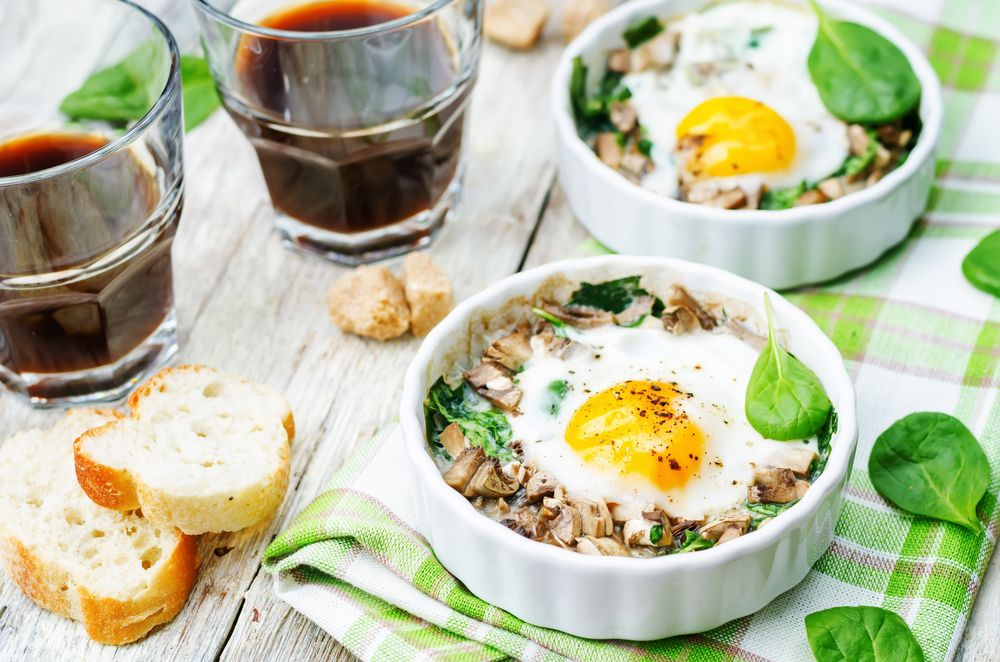
According to the American Heart Association, you can enjoy up to one whole egg per day, making this recipe perfectly portioned. Add mushrooms and spinach for a low-calorie, nutrient-dense addition to your breakfast.
Banana Pancakes
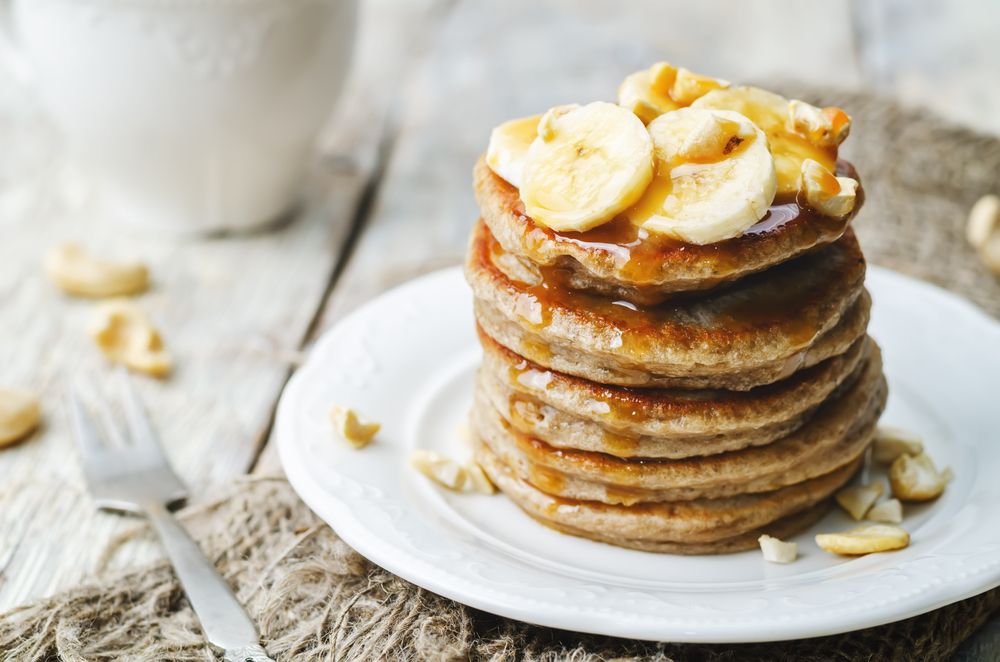
These banana pancakes are made with a blend of Greek yogurt, cottage cheese, eggs, lemon juice, and whole wheat flour, offering 320 calories per serving. Topped with bananas, this meal provides a good source of potassium, an essential nutrient for heart health that plays a key role in regulating blood pressure, according to research.
Snickerdoodle Protein Mini Muffins

These protein-packed muffins get their boost from vanilla protein powder, and they skip the butter in favor of potassium-rich bananas, almond meal, and dates for natural sweetness.
Sunrise Sandwich With Turkey, Cheddar, and Guacamole
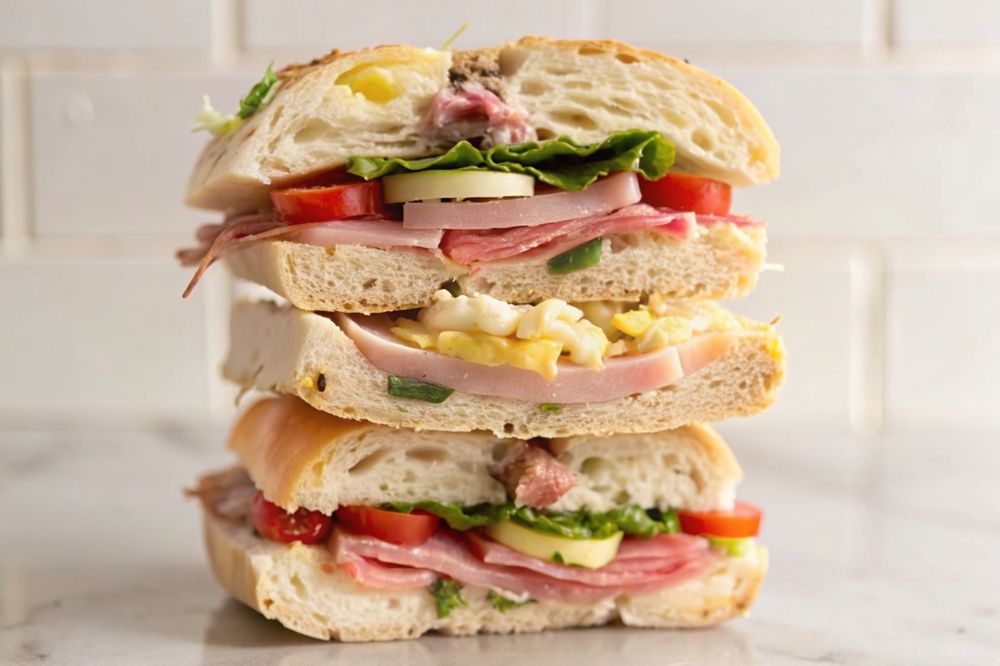
At 380 calories, this breakfast sandwich offers a well-rounded combination of whole wheat English muffin, egg, turkey breast, and cheddar cheese. For a lower-sodium option, opt for no-added sodium turkey breast or use fresh turkey leftovers.
Fruit and Granola Yogurt Parfait
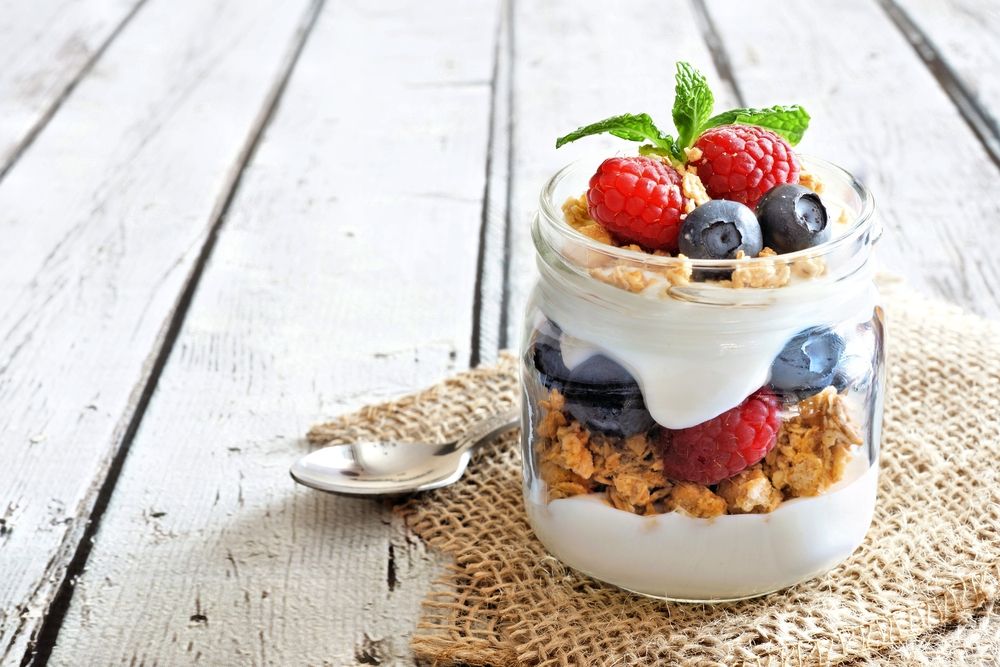
This parfait layers Greek yogurt, granola, and berries for a heart-healthy breakfast. It contains 330 calories per serving, with 8 grams of total fat and 3.5 grams of saturated fat. Skip the added sugar for an even healthier option.
Vanilla Bourbon French Toast
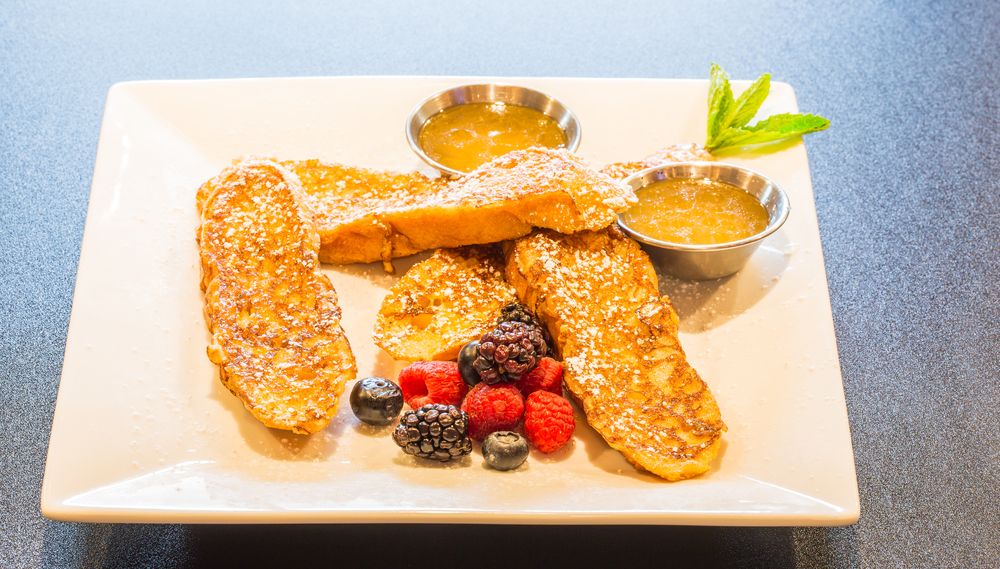
Vanilla and bourbon add a rich flavor to this French toast, with most of the alcohol cooking off. Use whole grain bread for added fiber, and top with heart-healthy berries for a nutrient-packed breakfast.
Turkey-Sweet Potato Breakfast Hash
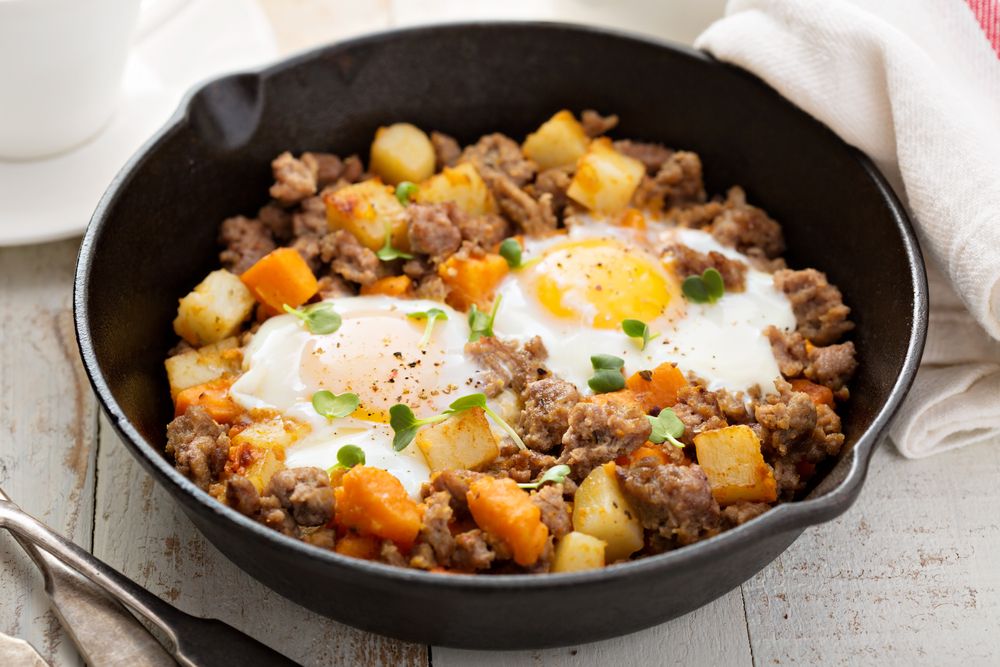
This hash combines turkey sausage, sweet potatoes, and bell peppers for a fiber- and protein-rich meal. With only one ounce of turkey sausage per serving, it brings flavor without overloading on saturated fat.
Cinnamon Roll Overnight Oats
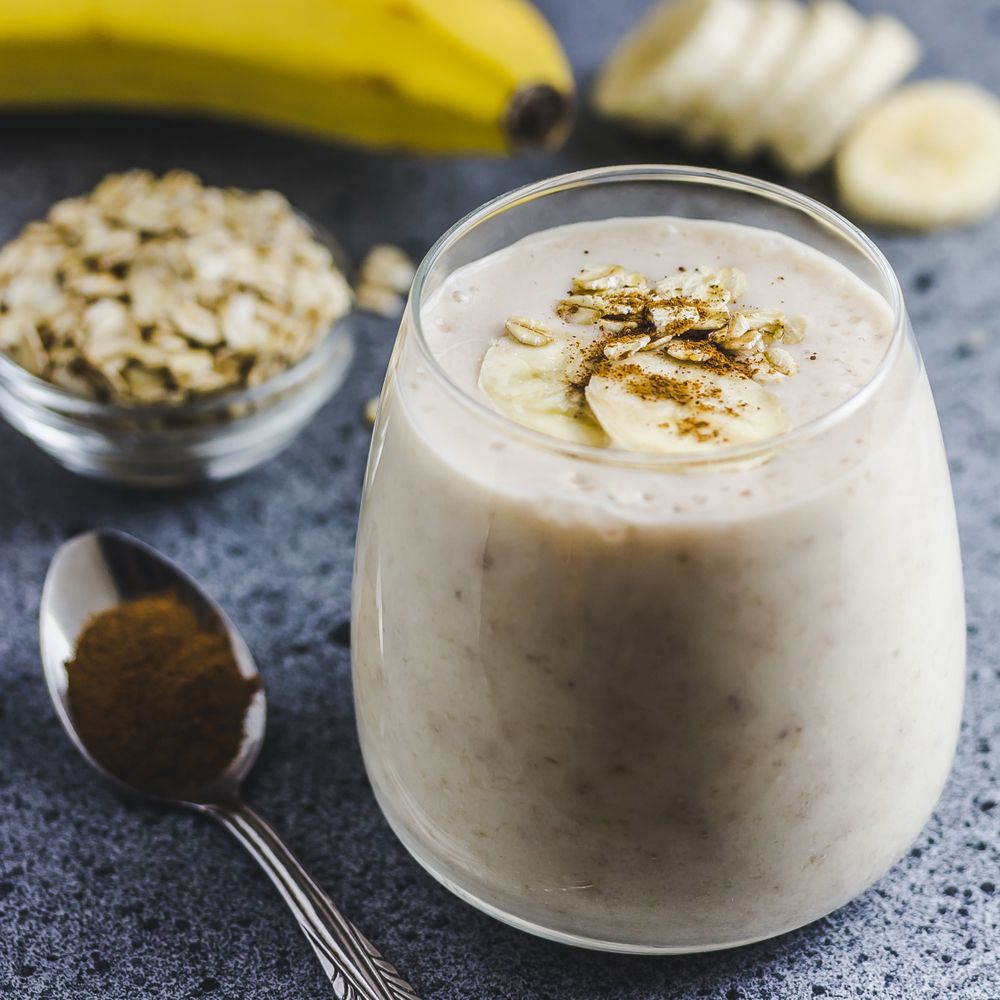
Prepare these heart-healthy oats the night before, and in the morning, you can top them with cream cheese frosting or opt for fresh berries and almonds for a lighter option.
Zucchini Bread
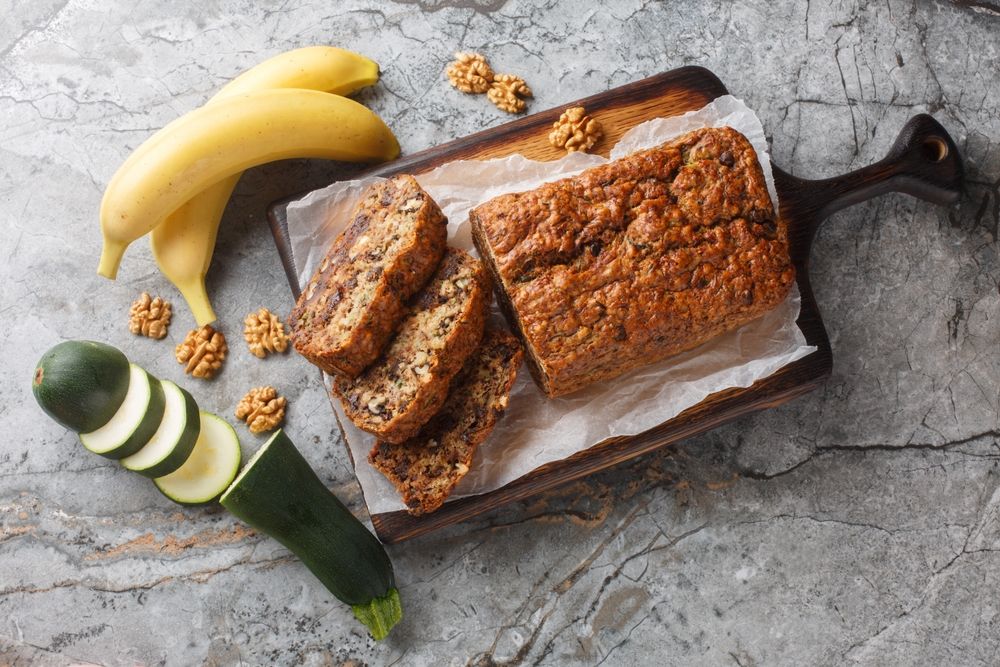
This simple zucchini bread is made with oats, zucchini, and spices. Add a small amount of chocolate chips for a fun twist, and pair it with kefir or fruit for a quick morning meal.
Raspberry-Peach Swirled Smoothie
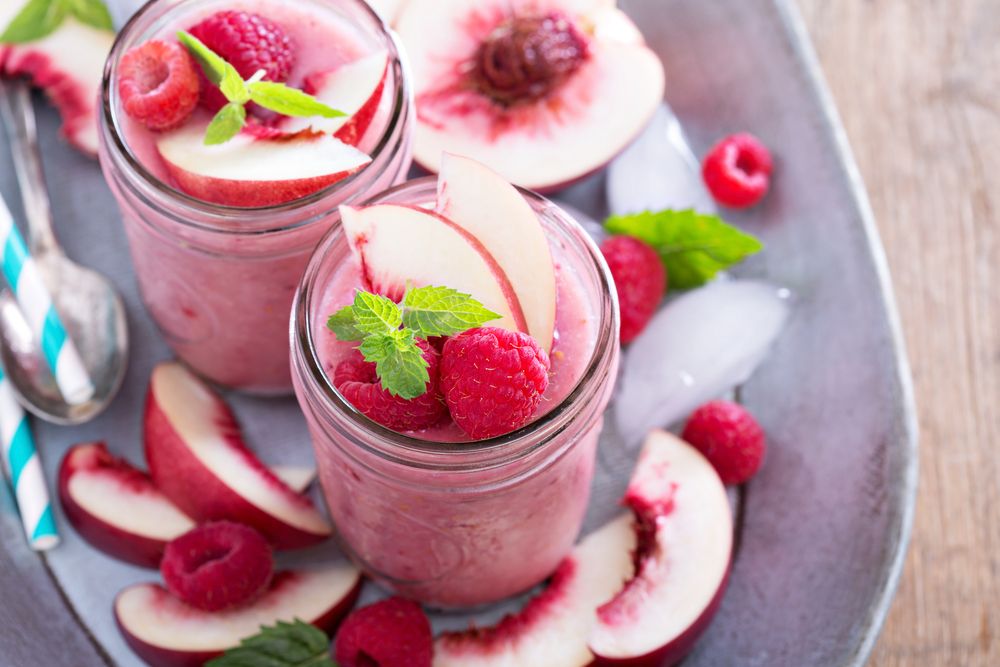
Frozen fruit makes this smoothie quick and easy to whip up in under 10 minutes. The fiber and potassium in the fruit contribute to a heart-healthy diet. Skip the honey to reduce added sugar if you prefer.
Breakfast Salad
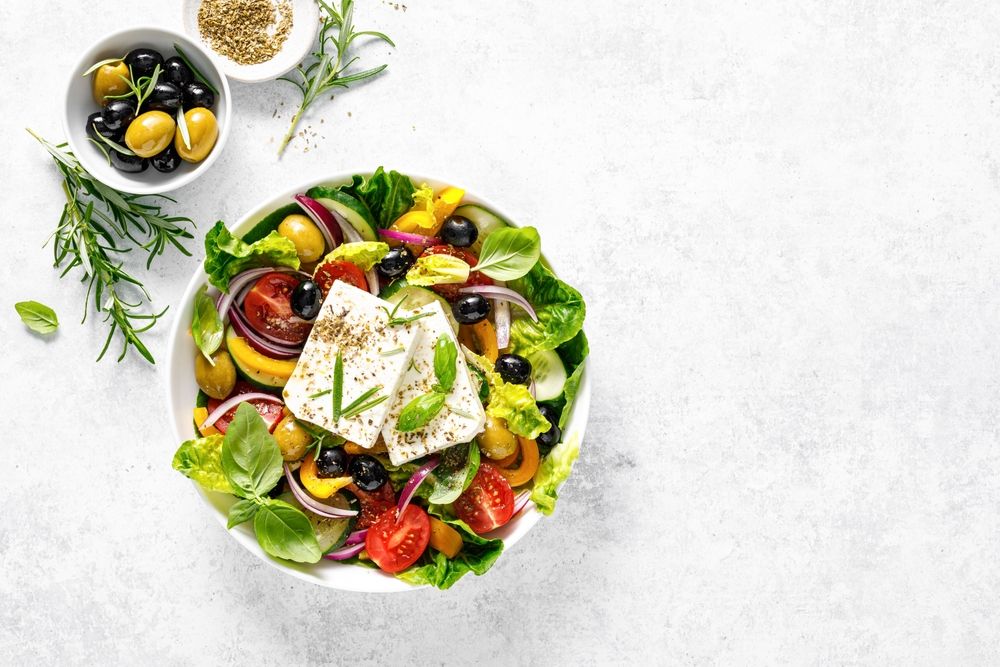
Why not boost your breakfast with more vegetables? Since 90% of Americans fall short of their daily veggie intake, adding nutrient-packed, low-calorie vegetables to your morning meal is an excellent way to get a healthy start. For a heart-healthier choice, pair your veggies with one egg per serving.

